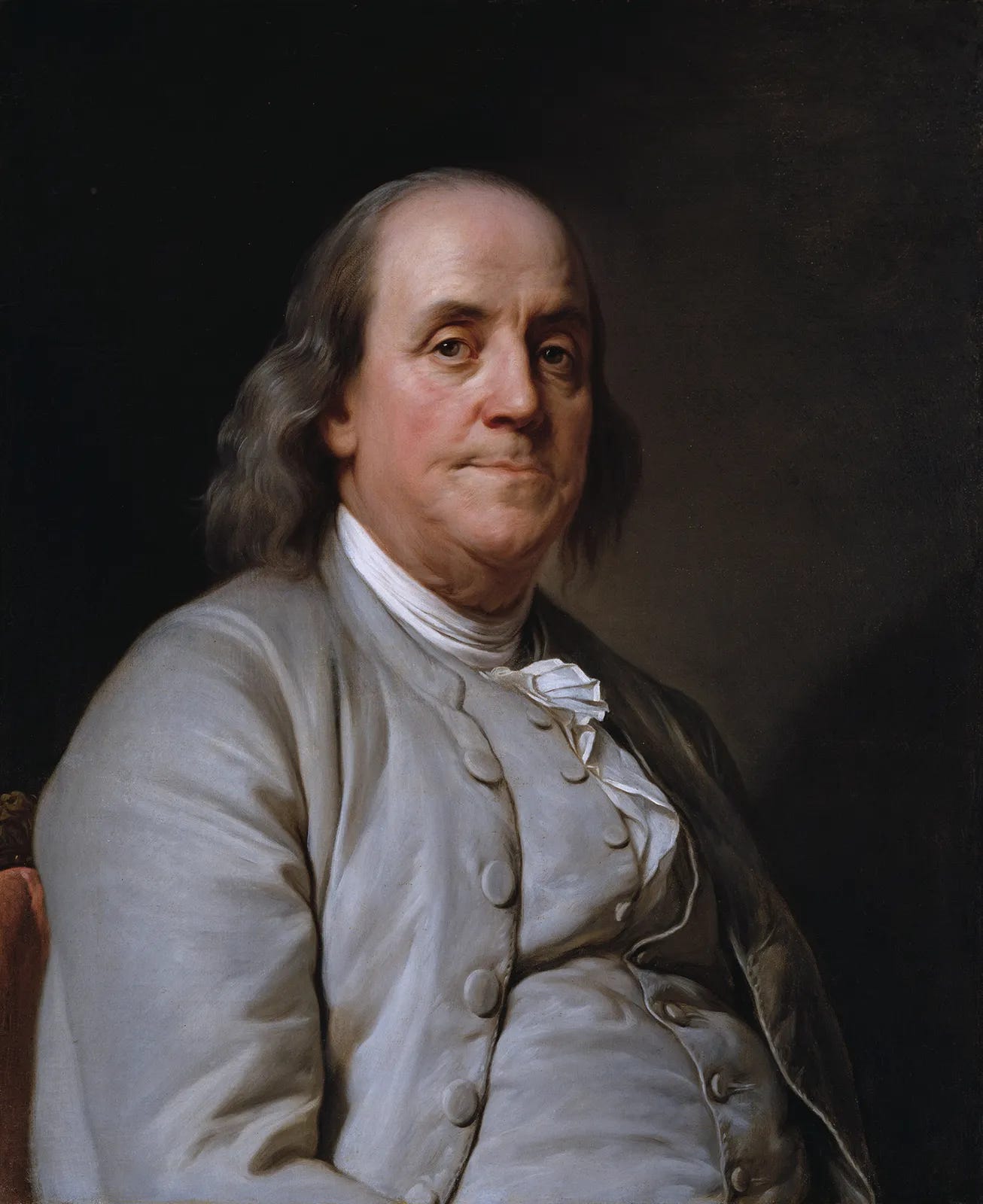Happy 319th birthday to the greatest American who ever lived. I ran out of time to finish this article, so Part II will be out tomorrow.
I have idolized Benjamin Franklin for as long as I can remember.
I wonder what he’d say about the current state of the nation he founded.
The grammar school I attended from first to eighth grade was named for Franklin, so he was introduced to me from the first day of my formal education and re-introduced every year until I was almost a teenager.
Growing up, I read many books about Ben Franklin—he was always called “Ben” in books for young people—in which he was usually portrayed as the fellow everyone wanted to know and be around: brilliant, hard-working, and entertaining. He was almost like a 17th-century Tom Sawyer.
Except Benjamin Franklin wasn’t a fictional character. He was a real person, and the United States of America wouldn’t exist without him.
The Greatest American
In his 2003 biography of Franklin, Walter Isaacson delights in calling him “the founding father who winks at us.” That’s a clever description from a skilled author who writes entertaining biographies for the general public. Still, I can’t help but feel that it trivializes Franklin’s achievements and contributions to the country and the world.
I prefer the sobriquet historian H.W. Brands applied in his authoritative biography published in 2000: The First American.
It would be impossible to list all of Franklin’s accomplishments without writing another biography. Here is a short list of some of his notable feats, mostly (but not exclusively) focusing on his contributions to America as we know it today.
One of America’s first satirists, Benjamin Franklin, who was 16 years old at the time, secretly wrote letters to his brother’s newspaper in the persona of a middle-aged widow named Silence Dogood. His brother published the satirical letters without knowing their source, and readers loved them.
Franklin was America’s first media magnate. After several failed attempts, he started his own newspaper, The Philadelphia Gazette, in 1728 at the age of 23. A few years later, he began publishing Poor Richard’s Almanack. Ultimately, he would own interests in newspapers throughout the American colonies.
America’s first postmaster general, he set up the public mail delivery systems that made the country’s postal service the best in the world.
He started America’s first public library, one of America’s first volunteer firefighting companies, and the college that became the University of Pennsylvania.
Franklin proved that lightning is electricity and was the first to use the terms “positive” and “negative” for electrical poles. (In other words, he’s the reason there’s a “+” and a “-” on batteries.)
He discovered and charted the Gulf Stream in the Atlantic.
Benjamin Franklin negotiated the Treaty of Paris, in which France recognized the independence of the United States of America and became an ally in the War for Independence.
Benjamin Franklin is the only person who signed all three of America’s founding documents: the Declaration of Independence, the Treaty of Paris, and the United States Constitution.
I could go on and on, but you get the idea. Benjamin Franklin created the idea of the United States of America, and I’m certain he would be deeply saddened (though not, perhaps, surprised) by the state of the nation today.
Sorry, I ran out of time. I’ll have the rest of my thoughts on Ben tomorrow. Thanks for your patience. Writing is hard.



